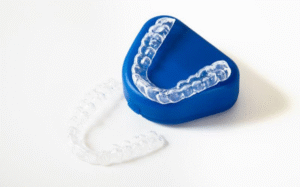Managing Ingrown Toenails and Everyday Foot Care in Singapore

Foot discomfort can disrupt routine tasks, from walking to wearing enclosed shoes. The ingrown toenail is one of the most frequent causes of foot pain. This is a condition that requires professional intervention for a proper resolution, not just at-home trimming. Clinical foot care in Singapore has evolved to manage these issues using medically guided, hygienic methods that prioritise long-term health over short-term relief.
Understanding Ingrown Toenails in Singapore
An ingrown toenail develops when the nail edge grows into the surrounding skin, often resulting in pain, swelling, and in some cases, infection. Improper trimming, tight footwear, or genetic predisposition can all contribute. In Singapore’s humid climate, the risk is heightened due to frequent sweating, which softens the nail and surrounding tissue. Podiatric foot care in Singapore often begins with identifying such localised factors that influence recurrence.
Why Self-Treatment Often Fails
Many individuals attempt to relieve ingrown toenail discomfort in Singapore by digging into the nail corner or applying ointments. However, these interventions tend to provide only temporary relief and can worsen the problem. In a clinical setting, podiatrists approach the issue with sterile tools and assess whether the ingrown nail is chronic, infected, or due to an abnormal nail shape. This determines whether conservative trimming or a partial nail removal is required.
What Clinical Foot Care Involves
Professional foot care in Singapore includes procedures beyond basic trimming. For persistent cases, minor in-clinic surgeries are conducted to remove part of the nail matrix and prevent regrowth. This is performed under local anaesthesia and allows the patient to return to daily activities quickly. For less severe cases, pressure relief techniques, footwear advice, and regular monitoring help control symptoms and reduce flare-ups.
Prevention Through Routine Foot Management
Routine care plays a central role in preventing ingrown nails from recurring. This includes trimming nails straight across rather than into a curve, selecting well-fitted shoes, and maintaining good foot hygiene. Podiatrists also evaluate walking patterns and toe alignment, which can sometimes place uneven pressure on certain parts of the nail. Foot care in Singapore often takes a holistic view. This approach involves addressing not only nail maintenance but also the underlying biomechanical factors of the feet.
Risk Factors That Require Special Attention
Individuals with diabetes, vascular issues, or weakened immunity must take extra care with foot health. What starts as a mild ingrown toenail discomfort in Singapore can escalate into a serious complication for these groups. Podiatric clinics in Singapore follow strict clinical protocols when handling such patients, ensuring that any intervention, however minor, is adapted for their health status. This level of caution reduces the likelihood of infections and delays in wound healing.
Ingrown Toenails in Children and Adolescents
Younger patients can also be prone to ingrown nails, especially if they engage in sports or wear restrictive footwear. In growing feet, podiatrists may monitor nail growth over time and provide guidance to caregivers on managing footwear, nail cutting, and hygiene. Early attention prevents recurring issues into adulthood. Foot care in Singapore’s paediatric context often involves education as much as it does direct treatment.
The Role of Follow-Up and Aftercare
Post-treatment care is essential for full recovery. Patients are advised to avoid certain activities, monitor for infection, and return for dressing changes or reviews. Podiatrists often issue long-term care advice, including orthotic recommendations or activity modifications. Ongoing foot care in Singapore reinforces recovery while educating patients on how to maintain results.
Conclusion
Foot pain should never be normalised, especially when it interferes with mobility and quality of life. In the case of ingrown toenails, early and appropriate intervention prevents escalation and promotes faster healing. Podiatric foot care in Singapore addresses this condition with structured protocols, clinical accuracy, and preventive education. Whether it’s a one-time occurrence or a chronic issue, medical attention ensures the foot returns to a healthy, functional state.
To arrange a professional assessment for an ingrown toenail in Singapore, contact Fine Podiatry Clinic.






